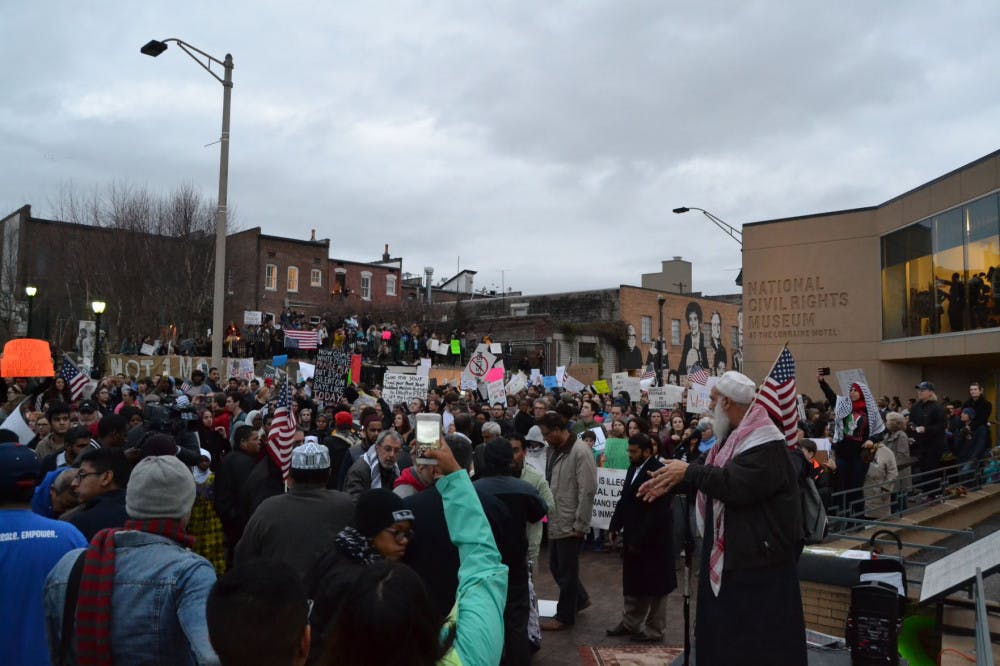After the 2016 Presidential election, activism increased when President Donald Trump was sworn in is as the 45th President of the United States.
Aram Goudsouzian, professor and chair of the Department of History at the University of Memphis, said public protests in 2018 are likely to continue.
“Naturally, the controversial Donald Trump (being elected) to Presidency escalated the scale of protest, most dramatically with the nationwide Women’s March,” Goudsouzian said.
Goudsouzian said protests have proven to have a significant impact on the advancement of social justice ideals, exhibited most recently by “Take ‘Em Down 901.”
“Protests do not immediately change policies — they dramatize political concerns and lay pressure on elected officials,” Goudsouzian said.
The Black Lives Matter movement also entered the mainstream in 2017 when protesters came together in cities like New York City, Chicago and Memphis to empower black individuals.
As the year went on, protests continued to make national news. Immigrants protested on the “Day Without Immigrants” on Feb. 16 by not going to work in hopes to demonstrate the importance of immigrants.
The protests against Executive Order 13769, colloquially known as Trump’s “travel ban,” quickly gained attention when crowds marched to John F. Kennedy International Airport and Los Angeles International Airport to demonstrate objection to the order.
In 2018, this wave of activism should continue with an anniversary protest of the Women’s March on Washington, called the “Women’s March 2.0 Power Together Rally,” which will have a sister march in Nashville hosted by Power Together Tennessee.
The Women’s March 2.0 will showcase the important issues of the first Women’s March and continue to fight, according to Power Together Tennessee, they hope this march will set a tone for 2018 and the midterm elections.






